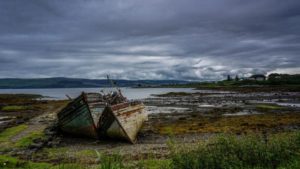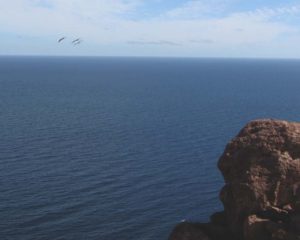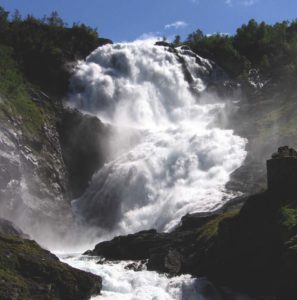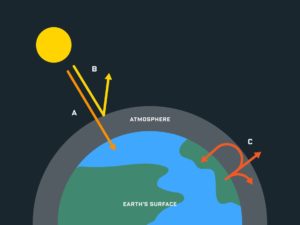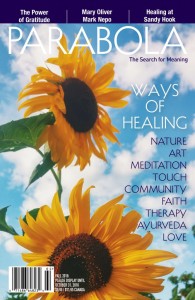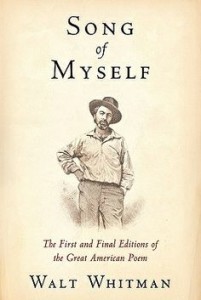Parabola
“…surely not alarmed enough.”
February 11, 2018“Complacency is much more dangerous than fatalism.’
New York Magazine:
There’s a lot of scientific debate about the future of climate change. But have you ever considered the worst case scenario? David Wallace-Wells gives us one terrifying glimpse into the future after consulting experts from various fields.
http://nymag.com/daily/intelligencer/2017/07/climate-change-earth-too-hot-for-humans.html
But no matter how well-informed you are, you are surely not alarmed enough. Over the past decades, our culture has gone apocalyptic with zombie movies and Mad Max dystopias, perhaps the collective result of displaced climate anxiety, and yet when it comes to contemplating real-world warming dangers, we suffer from an incredible failure of imagination. The reasons for that are many: the timid language of scientific probabilities, which the climatologist James Hansen once called “scientific reticence” in a paper chastising scientists for editing their own observations so conscientiously that they failed to communicate how dire the threat really was; the fact that the country is dominated by a group of technocrats who believe any problem can be solved and an opposing culture that doesn’t even see warming as a problem worth addressing; the way that climate denialism has made scientists even more cautious in offering speculative warnings; the simple speed of change and, also, its slowness, such that we are only seeing effects now of warming from decades past; our uncertainty about uncertainty, which the climate writer Naomi Oreskes in particular has suggested stops us from preparing as though anything worse than a median outcome were even possible; the way we assume climate change will hit hardest elsewhere, not everywhere; the smallness (two degrees) and largeness (1.8 trillion tons) and abstractness (400 parts per million) of the numbers; the discomfort of considering a problem that is very difficult, if not impossible, to solve; the altogether incomprehensible scale of that problem, which amounts to the prospect of our own annihilation; simple fear. But aversion arising from fear is a form of denial, too.
To The Best of Our Knowledge:
There’s a lot of scientific debate about the future of climate change. But have you ever considered the worst case scenario? David Wallace-Wells gives us one terrifying glimpse into the future after consulting experts from various fields.
https://www.ttbook.org/interview/how-bad-can-climate-change-really-get
And while many people are working to try to counter this imbalance, most are approaching it with the very same mind-set that has created this predicament. Before we can begin to redeem this crisis, we need to go to the root of our present paradigm—our sense of separation from our environment, the lack of awareness that we are all a part of one interdependent living organism that is our planet. This can be traced to the birth of the scientific era in the Age of Enlightenment and the emergence of Newtonian physics, in which humans were seen as separate from the physical world, which in turn was considered as unfeeling matter, a clockwork mechanism whose workings it was our right and duty to understand and control.
While this attitude has given us the developments of science and technology, it has severed us from any relationship to the environment as a living whole of whose cycles we are a part. We have lost and entirely forgotten any spiritual relationship to life and the planet, a central reality to other cultures for millennia.1 Where for indigenous peoples the world was a sacred, interconnected living whole that cares for us and for which we in turn need to care—our Mother the Earth—for our Western culture it became something to exploit.
But there is an even deeper, and somewhat darker, side to our forgetfulness of the sacred within creation. When our monotheistic religions placed God in heaven they banished the many gods and goddesses of the Earth, of its rivers and mountains. We forgot the ancient wisdom contained in our understanding of the sacred in creation—its rhythms, its meaningful magic. For example, when early Christianity banished paganism and cut down its sacred groves, they forgot about nature devas, the powerful spirits and entities within nature, who understand the deeper patterns and properties of the natural world. Now how can we even begin the work of healing the natural world, of clearing out its toxins and pollutants, of bringing it back into balance, if we do not consciously work with these forces within nature?
Nature is not unfeeling matter; it is full of invisible forces with their own intelligence and deep knowing. We need to reacknowledge the existence of the spiritual world within creation if we are even to begin the real work of bringing the world back into balance. Only then can we regain the wisdom of the shamans who understood how to communicate and work together with the spirit world.2
While there may be a growing awareness that the world forms a single living being—what has been called the Gaia principle—we don’t really understand that this being is also nourished by its soul, the anima mundi—or that we are a part of it, part of a much larger living, sacred being. Sadly, we remain cut off, isolated from this spiritual dimension of life itself. We have forgotten how to nourish or be nourished by the soul of the world….3
We cannot return to the simplicity of an indigenous lifestyle, but we can become aware that what we do and how we are at an individual level affects the global environment, both outer and inner. We can learn how to live in a more sustainable way, not to be drawn into unnecessary materialism.
We can also work to heal the spiritual imbalance in the world. Our individual conscious awareness of the sacred within creation reconnects the split between spirit and matter within our own soul and also within the soul of the world: we are part of the spiritual body of the Earth more than we know.
The crisis we face now is dire, but it is also an opportunity for humanity to reclaim its role as guardian of the planet, to take responsibility for the wonder and mystery of this living, sacred world.
Full article:
https://parabola.org/2018/01/10/the-call-of-the-earth-by-llewellyn-vaughan-lee/
THE WIRED GUIDE TO CLIMATE CHANGE
How this Global Climate Shift Got Started
“If we want to go all the way back to the beginning, we could take you to the Industrial Revolution—the point after which climate scientists start to see a global shift in temperature and atmospheric carbon dioxide levels. In the late 1700s, as coal-fired factories started churning out steel and textiles, the United States and other developed nations began pumping out its byproducts. Coal is a carbon-rich fuel, so when it combusts with oxygen, it produces heat along with another byproduct: carbon dioxide. Other carbon-based fuels, like natural gas, do the same in different proportions.
When those emissions entered the atmosphere, they acted like an insulating blanket, preventing the sun’s heat from escaping into space. Over the course of history, atmospheric carbon dioxide levels have varied—a lot.”
Our Authority of Being
August 31, 2016An essay by Mark Nepo.
‘…All that was left was the bare fact of his own existence, the fact of his breath connecting him to the fact of all existence. He was a piece of life living—that was all.
[…]
In discovering your own authority of being, you may want to spend time with the great poem SONG OF MYSELF by Walt Whitman. I urge you to read it slowly, and to be in conversation with the places it awakens in you.
And the next time you’re told you’re good or bad, the next time you’re ignored or rejected, I encourage you to practice your inner resolve; not by criticizing yourself or finding yourself wanting, but by climbing to that place in you that is immune to both submitting and resisting, that place of unquestioned certainty about the fact of life, which Walt Whitman confirms in SONG OF MYSELF when he says:
I do not trouble my spirit
to vindicate itself
or be understood;I see that the elementary
laws never apologize.I exist as I am—that is enough;
If no other in the world
be aware, I sit content;And if each and all be aware,
I sit content.’
Full essay:
http://parabola.org/2016/08/01/our-authority-of-being-by-mark-nepo/
